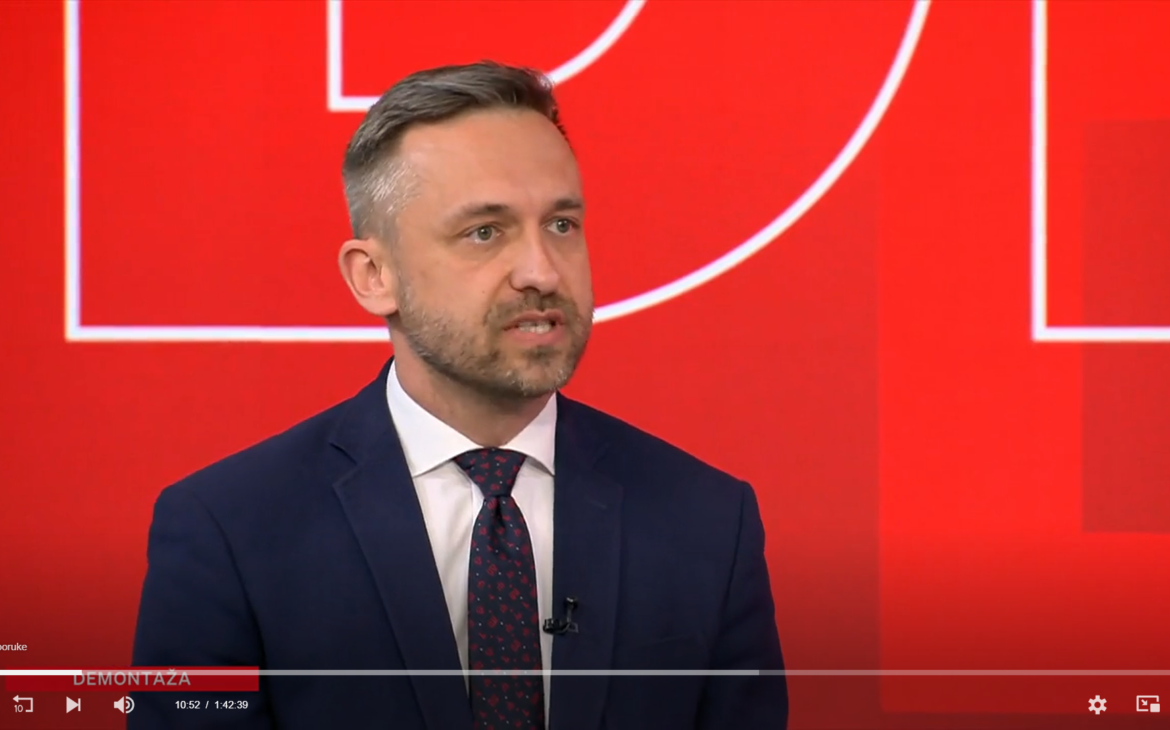From 2016 to today, the average salary has increased by 65%, making the statement COMPLETELY TRUE.
Marin Piletić (HDZ) stated in the show Demontaža on Nova TV broadcasted on April 2, 2024: “In the past 8 years of HDZ government, the average salary has increased by 65 percent through continuous tax relief, which we will continue to do.” (Source: Demontaža, 23:25 minutes).
According to data from the Croatian Bureau of Statistics (Statistics in a series – Salaries), the average gross salary in 2016 was 1029 euros, and in January 2024, it was 1695 euros. We calculated the percentage growth, and according to our calculation, the growth is 64.7 percent. Therefore, the statement is COMPLETELY TRUE.
However, we also investigated the context. According to Darko Šeperić, executive secretary for public policies, projects, and education at the Croatian Bureau of Statistics, who also calculated that the nominal increase was 67 percent, but noted that “the cumulative inflation rate for the same period was 28 percent, meaning that the real growth of the average salary was 39 percent.”
– However, this does not mean that the standard of living has increased by that amount, as the prices of food and other basic necessities have risen much more than the general inflation rate. Another problem is that we do not know enough about how this statistically recorded salary growth is distributed among different groups of workers. What we do know is that we still have a large number of workers with very low salaries, and many whose salaries have not grown by the rate of inflation, or at all – emphasized Šeperić.
The recent increase in salaries is primarily due to the state of the labor market, he continues, specifically the shortage of workers, and not due to any special economic policy measures, employment policy, or wage policy, which does not exist in Croatia at all. Therefore, according to Šeperić, the government is not responsible for this salary increase, except perhaps to the extent that it failed to stop emigration. It should also be noted, he adds, that most countries in the region recorded the same or even greater salary growth than Croatia during the same period.
– The key problem, however, is the lack of any wage policy and a complete misunderstanding of this concept, as a result of which the gains in salary growth are often illogically and unfairly distributed among different groups of workers. Although salaries are predominantly determined by the market, the state can and should create a framework within which this happens, monitor and, if necessary, direct these trends, taking into account what we consider socially acceptable and fair when it comes to relationships and ranges of salaries for certain jobs and sectors. Unfortunately, our government does not understand this at all, but occasionally takes measures, for example in the area of tax policy, which short-term increases workers’ incomes but long-term harms the growth of gross salaries – concluded Šeperić.
How we calculated the percentage growth:
Percentage growth = ((New value – Old value) / Old value) × 100
Where:
• New value: Average gross salary in January 2024 (1695 euros)
• Old value: Average gross salary in 2016 (1029 euros)
Percentage growth = ((1695 – 1029) / 1029) × 100 = ((1029 – 1695) / 1029) × 100 = (666 / 1029) × 100 = 0.647 × 100 ≈ 64.7%
Therefore, the average gross salary has increased by approximately 64.7% from 2016 to January 2024.

